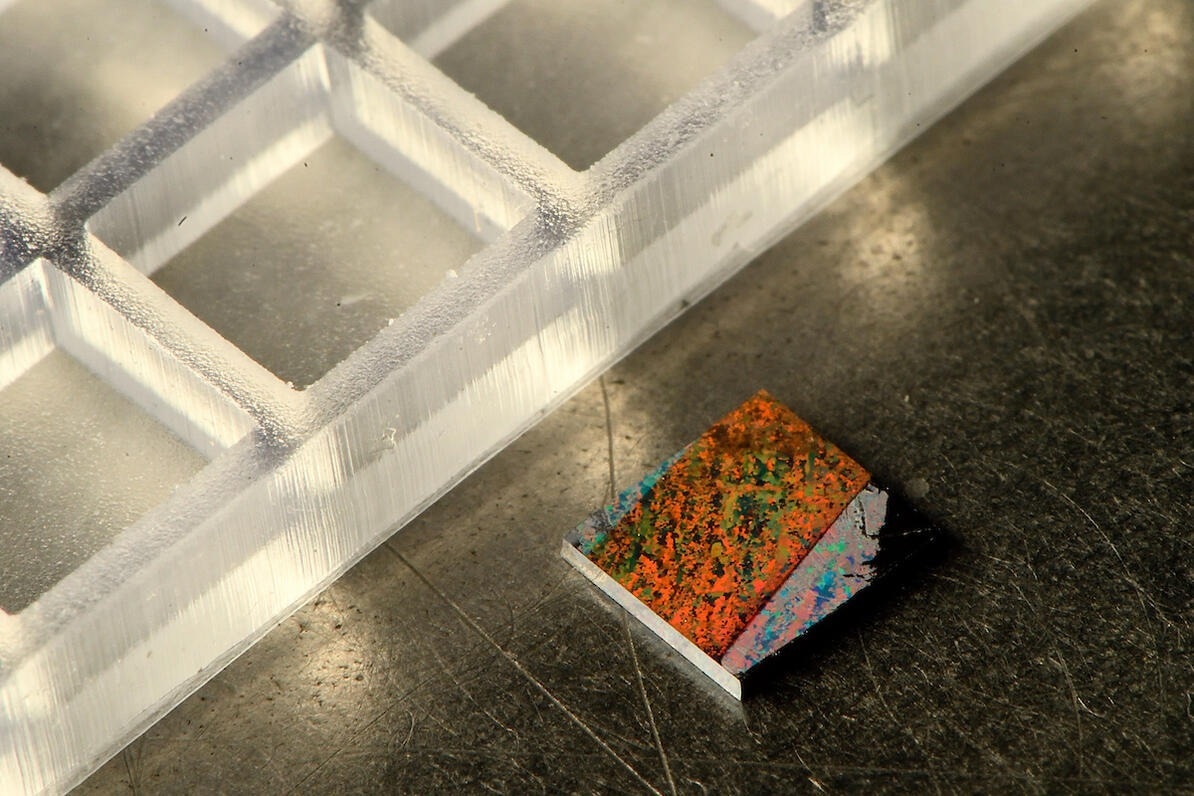Reviewed by Lexie CornerOct 17 2024
In a study published in Advanced Science, researchers from Johns Hopkins University have developed a new blood test that can diagnose conditions in minutes rather than hours, offering a potential tool for both first responders and at-home patients. The proof-of-concept study can be adapted to identify cancer biomarkers and infectious diseases.
 The heart of the blood test is a chip with a groundbreaking nanostructured surface on which blood is tested. Image Credit: Will Kirk / Johns Hopkins University
The heart of the blood test is a chip with a groundbreaking nanostructured surface on which blood is tested. Image Credit: Will Kirk / Johns Hopkins University
Every second matters during heart attacks.
Heart attacks require immediate medical intervention in order to improve patient outcomes, but while early diagnosis is critical, it can also be very challenging—and near impossible outside of a clinical setting. We were able to invent a new technology that can quickly and accurately establish if someone is having a heart attack.
Peng Zheng, Study Lead Author and Assistant Research Scientist, Johns Hopkins University
Zheng and senior author Ishan Barman have leveraged biophotonics to create diagnostic tools that use laser light to detect biomarkers, which indicate the body's response to various conditions, including diseases. In this study, they focused on using this technology to identify the earliest signs of a heart attack in the blood.
Despite the fact that over 800,000 people experience heart attacks annually in the U.S., diagnosing them remains a challenge due to symptoms that vary significantly and subtle biological signals, particularly in the early stages when intervention is most effective. The typical tests used, such as electrocardiograms (which measure the heart's electrical activity and take about five minutes) and blood tests (which require lab analysis and can take up to an hour, often needing to be repeated), delay diagnosis.
The team developed a standalone blood test that provides results in five to seven minutes and claims it is more accurate and less expensive than current methods. Originally designed for clinical diagnostics, the test could be adapted into a portable device for first responders or even for use at home.
We are talking about speed, we are talking about accuracy, and we're talking of the ability to perform measurements outside of a hospital. In the future, we hope this could be made into a hand-held instrument like a Star Trek tricorder, where you have a drop of blood and then, voilà, in a few seconds you have detection.
Ishan Barman, Professor, Department of Mechanical Engineering, Johns Hopkins University
The core innovation of the tool is a small chip that tests blood on a novel nanostructured surface. This "metasurface" enhances electric and magnetic signals during Raman spectroscopy analysis, making heart attack biomarkers detectable within seconds, even at extremely low concentrations.
The tool’s sensitivity allows it to detect biomarkers that might be missed by current tests or only identified later in an attack. While designed to diagnose heart attacks, the researchers believe the technology could also be adapted to detect infectious diseases and cancer.
Barman added, “There is enormous commercial potential. There is nothing that limits this platform technology.”
The team plans to conduct larger clinical trials and further improve the blood test.
Other authors include Lintong Wu, Piyush Raj, Jeong Hee Kim, Santosh Paidi from Johns Hopkins, and Steve Semancik from the National Institute of Standards and Technology.
The study was funded by the National Institute of General Medical Sciences, grant 1R35GM149272.
Journal Reference:
Zheng, P. et. al. (2024) Multiplexed SERS Detection of Serum Cardiac Markers Using Plasmonic Metasurfaces. Advanced Science. doi.org/10.1002/advs.202405910